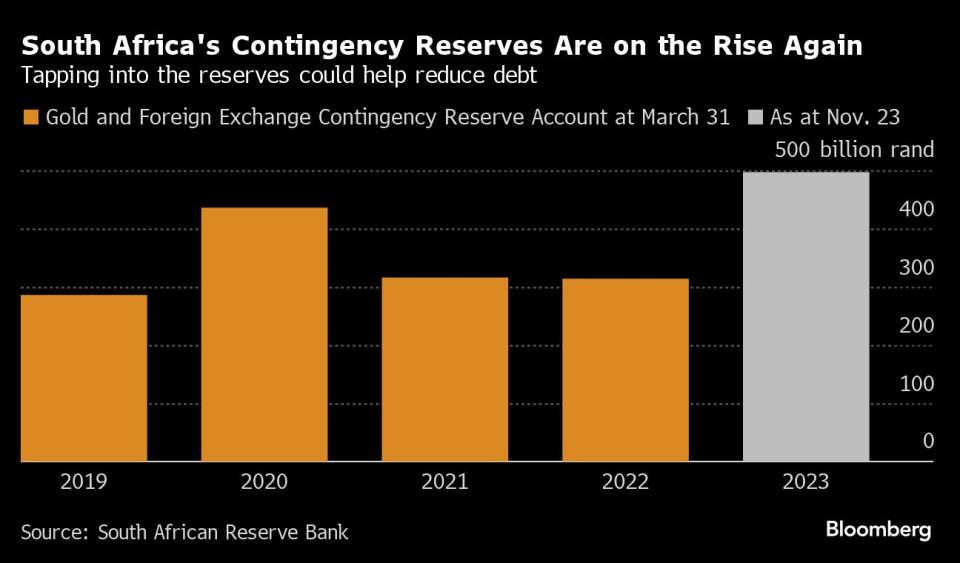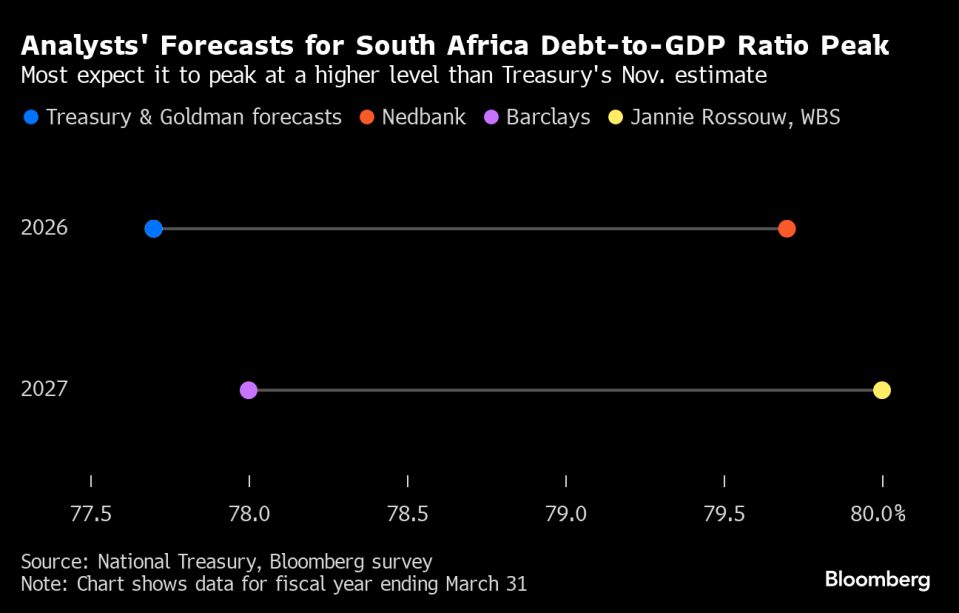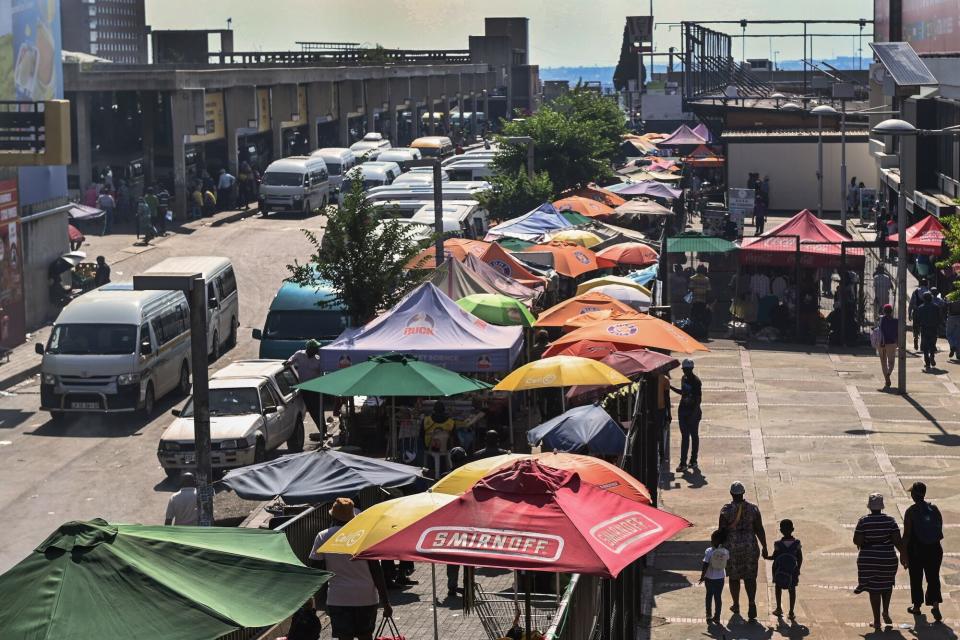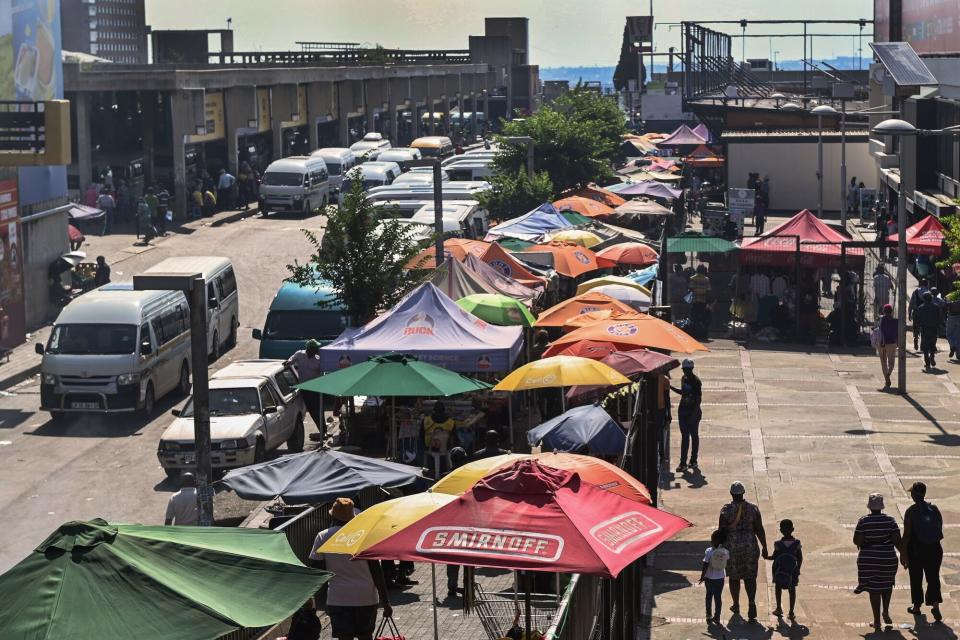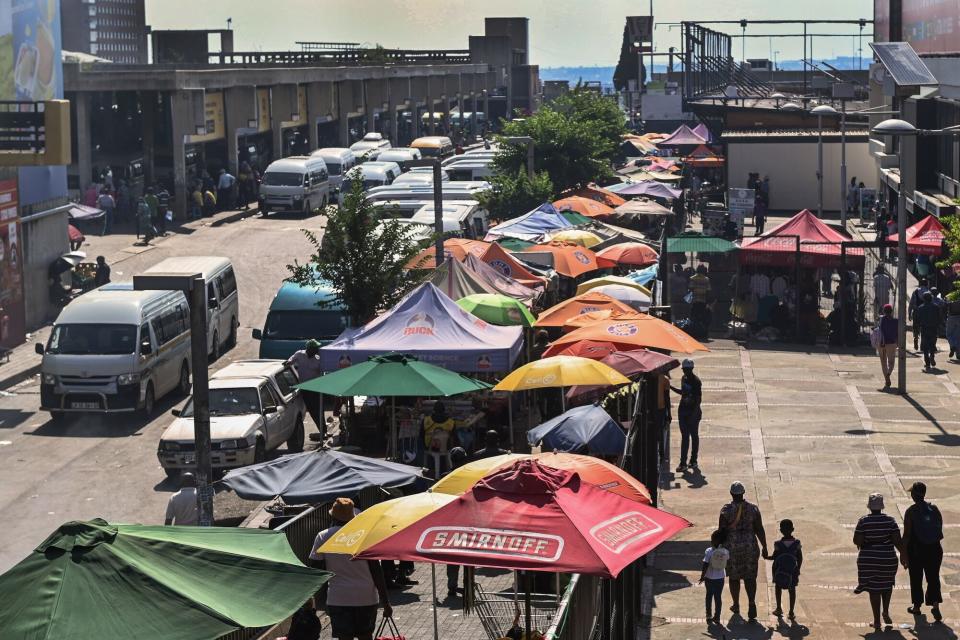Five Things to Watch For in South Africa’s Pre-Election Budget
(Bloomberg) -- South African Finance Minister Enoch Godongwana will table his annual budget on Wednesday in the lead up to elections that opinion polls show will deprive the ruling African National Congress of a parliamentary majority for the first time in three decades.
Most Read from Bloomberg
Nvidia Surges After Company Proclaims AI Has Hit 'Tipping Point'
Biden Touts $1.2 Billion in Student Loan Relief With Eye to 2024
Tech Up in Late Hours on Nvidia’s Bullish Outlook: Markets Wrap
China Tightens Grip on Stocks With Net Sale Ban at Open, Close
Godongwana is simultaneously facing pressure from investors to stabilize public debt and rein in spending, and from the ANC to bolster access to welfare grants and health care as the party seeks to curry favor with voters before the election on May 29.
Here are the key things to watch out for:
1. Debt Stabilization
The National Treasury’s three-year fiscal framework currently envisions the debt-to-gross-domestic ratio peaking at 77.7% in 2025-26. That target is looking increasingly at risk. It will take just one more shock for the ratio to rise above the precarious 80% level, according to Goldman Sachs International Economist Andrew Matheny, who foresees a revenue shortfall of as much as 45 billion rand ($2.4 billion). “The debt stabilization that Treasury has consistently had in its projections over the last 15 years has proved to be pretty elusive,” he said.
Read More: South Africa Confronting Debt Blowout as Revenue Misses Forecast
2. New Taxes
Godongwana unveiled plans in his November budget update to raise an additional 15 billion rand in revenue and is now due to pronounce on where the money will come from. Squeezing additional tax from already stretched consumers won’t be easy, while corporate taxes are under pressure as a commodity boom fades. One option would be to raise value-added tax, which is currently levied at a rate of 15%, but doing that would anger the ANC’s supporters and labor union allies.
Read More: Tax Hikes Pointless in Weak Economy, South African Lender Says
3. Contingency Reserves
The Treasury is considering using part of the roughly 500 billion rand in paper profits earned on its reserves to help replenish its coffers. The account is administered by the central bank and realizing any gains would require selling part or all of the underlying assets — predominately gold and foreign reserves — a move that could rattle investors — depending on how it’s done. If the account is tapped “it must be with strict and credible conditions, that make clear that the function of foreign reserves is to protect the country from international crises and maintain its credibility in the international financial system,” said Busisiwe Mavuso, chief executive officer of lobby group Business Leadership South Africa. “It is not a free money pot for government bailouts.”
Read More: Reserves Drawdown Is Wildcard in South Africa’s Election Budget
4. Transnet Bailout
Transnet SOC Ltd., which runs South Africa’s freight rail system and main ports, has been dogged by operational and financial problems that have curbed exports and hamstrung the economy. Last year, Godongwana announced that the company would get 47 billion rand in debt guarantees that would help tide it over until the budget. In January, the minister said that the Treasury was keeping a close eye on Transnet, but stopped short of committing to providing it with additional assistance. The government may view Transnet as too big to fail, and inject further funding in phases over the next two fiscal years, said Nedbank Ltd. Senior Economist Isaac Matshego. He estimates that about 50 billion rand could be forthcoming. Goldman’s Matheny doesn’t foresee this budget making provision for Transnet, but that a relief package may be made available in the coming years.
Read More: How Rail and Port Chaos Add to South Africa’s Woes: QuickTake
5. Welfare Grants
The government first introduced a temporary 350-rand monthly welfare grant to cushion the unemployed against the impact of the coronavirus pandemic, and provision has been made for it to run until the end of March next year. While the ANC favors making the stipend permanent, the National Treasury has said it’s unaffordable unless alternative revenue sources are found. President Cyril Ramaphosa has said there’s a case to be made for the grant to be retained, even within South Africa’s fiscal constraints. “It’s going to be hard to take it away politically,” Matheny said. “You’re certainly not going to take it away, politically, before an election.”
Read More: Ramaphosa Pledges to Extend Welfare Grants as Election Looms
Most Read from Bloomberg Businessweek
How Bad Movie Dubbing Led to the Fake Biden Campaign Robocalls
Hybrid Plug-Ins Are Booming in the World’s Biggest EV Market
US Citizens Become Collateral Damage in Global Sanctions Fight
The Dangers of Relying on the US to Power the Global Economy
Gene Therapy Makers Struggle to Find Patients for Miracle Cures
©2024 Bloomberg L.P.

